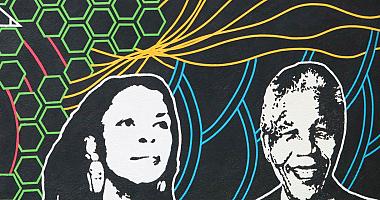Course information
Department
Length
1 year full-time or 2 years part-time
Scholarship information
Course overview
This pathway of the MA Literary Studies aims to enhance your knowledge and understanding of the literature that has sought to define or has emerged from 'America'.
The legacies of settler colonialism; racialised inequality and violence; the social impacts of capitalism and industrialisation, urbanisation and technology; environmental catastrophe. These are the urgent issues facing America now, but which have been pre-occupying American literature since at least the nineteenth century. The project of democracy continues to be fraught, the notion of a common and coherent national identity and history continues to be contested, and American literature continues to find new ways and forms to offer social critiques, to express alternative social possibilities, and to reveal the many different “Americas” that belie the idea of nation. It is this literary scrutiny that energises the pathway in American literature and culture.
Why study the MA Literary Studies: Pathway in Modern and Contemporary America Literature & Culture at Goldsmiths
- Our flexible pathway system enables you to focus on American literature and culture while also choosing modules in other areas of literary studies; or you can study as much American literature and culture as your timetable and the MA programme allows.
- Our team of American-literature specialists offers a unique, current, and cutting-edge range of US-related modules, from indigenous American fiction, contemporary African American literature, and climate change & Anthropocene fiction, to science fiction, and the twenty-first-century American novel. Our team works together to foster correspondences between these modules and areas of study, enabling you to see connections and disconnections, diversity and relatedness in your development of an advanced understanding of American literature.
- The pathway is grounded in a compulsory module that develops a foundational understanding of key genres, movements, and periods in American literature, including mid-nineteenth-century environmentalist and gothic confrontations with slavery and race, class and capital, and the legacies of colonialism; African American modernism; countercultural writing of the 1950s, '60s and '70s; and modern and contemporary Native American fiction. This module equips those who have not studied much American literature at undergraduate level to take the pathway and consolidates and develops the knowledge of those students with a more advanced understanding of American literary studies.
- While the compulsory module gives you a strong grounding in this field, the flexible structure of the MA will offer you the opportunity to pursue your wider interests by studying three options from the large provision of the Department of English and Creative Writing. You will choose at least one of these in an area that is relevant to the literature and culture of the Americas.
- You will be able to further develop your interest in American literature and culture through a 15,000-word dissertation to be submitted at the end of your programme of study.
Contact the department
If you have specific questions about the degree, contact Dr Richard Crownshaw.






